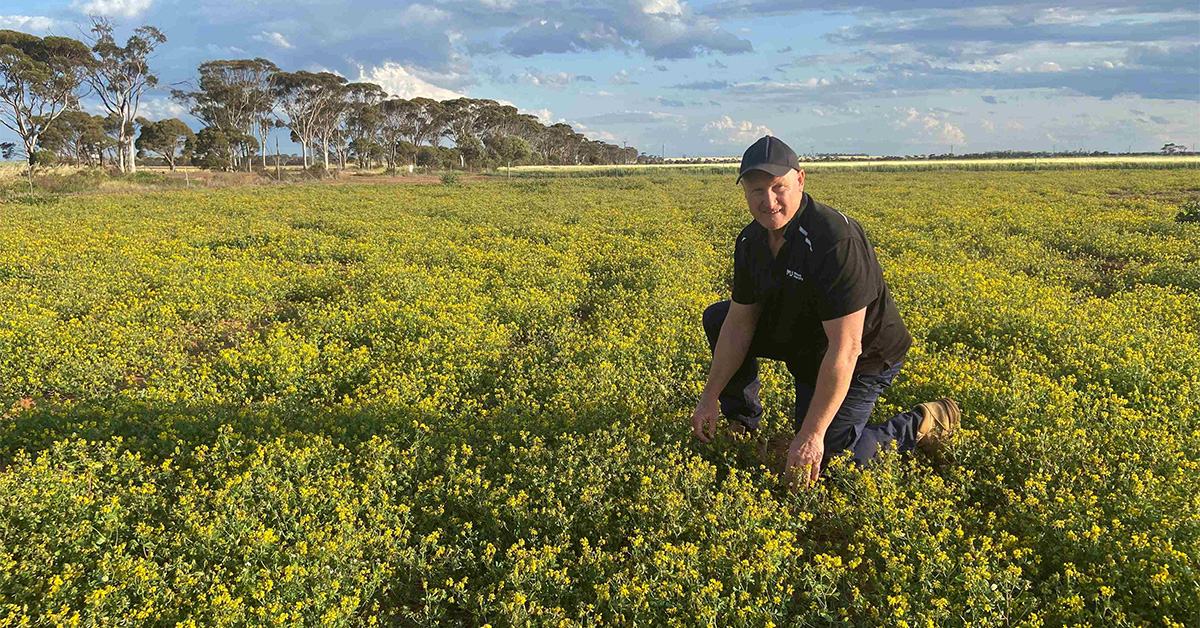A world-first cultivar of the legume pasture species Trigonella balansae, named Carn2ac, has been developed by scientists from the WA Agricultural Research Collaboration (WAARC), offering low-medium rainfall Wheatbelt farmers a header-harvestable crop-pasture option. The announcement, released by WAARC on February 4, 2025, highlights the potential for this new legume to boost farm resilience and promote sustainable agricultural practices.
The Carn2ac cultivar was developed under WAARC’s Harvestable Annual Legume Options (HALO) project, with co-investment from the Grains Research and Development Corporation (GRDC). The research team comprises members from Murdoch University, the Department of Primary Industries and Regional Development (DPIRD), and CSIRO, bringing together expertise in pasture legume breeding, agronomy, and bio-economic modelling.
According to WAARC and DPIRD research scientist Rob Harrison, Carn2ac is suited to mildly acidic-alkaline soils in WA’s low-medium rainfall zones and offers an inexpensive, drought-proofing pasture option. The legume increases fodder production, boosts nitrogen fixation, and enables farmers to produce and harvest their own seed on farm. Incorporating legumes into crop rotations also improves management of weeds, pests, and diseases.
Potential for Agritourism Integration:
The development of Carn2ac presents several opportunities for WA agritourism businesses to promote sustainable agriculture and enhance visitor experiences.
Agritourism operators can leverage this news by:
- Showcasing farms that utilize Carn2ac in their crop rotations, demonstrating a commitment to sustainable soil management.
- Educating visitors about the benefits of legumes in reducing the need for synthetic fertilizers and promoting soil health.
- Integrating the story of Carn2ac’s development into farm tours, highlighting WA’s agricultural innovation.
- Developing unique products, such as birdseed mixes or animal feed blends, incorporating harvested legume seed.
Considerations for Agritourism Businesses:
While the development of Carn2ac offers potential benefits for agritourism, businesses should also be mindful of certain considerations:
- The need for accurate and engaging communication about the benefits of legumes to appeal to a broad audience.
- Potential challenges in integrating new farming practices and showcasing them effectively to visitors.
- The importance of transparency and honesty in communicating about sustainable practices.
The Western Australia Agritourism Association encourages its members to explore opportunities to integrate the story of Carn2ac into their businesses, by highlighting sustainable farming practices, we can attract more visitors and enhance the reputation of WA as a leading agritourism destination.
Conclusion:
The development of the Carn2ac legume cultivar represents a positive step forward for sustainable agriculture in Western Australia. Agritourism businesses that embrace this innovation and effectively communicate its benefits to visitors can enhance their reputation, attract a growing market of eco-conscious tourists, and contribute to a more sustainable future for the industry. The WAAA encourages members to stay informed about agricultural innovations and explore opportunities to integrate them into their operations.

Leave a Reply